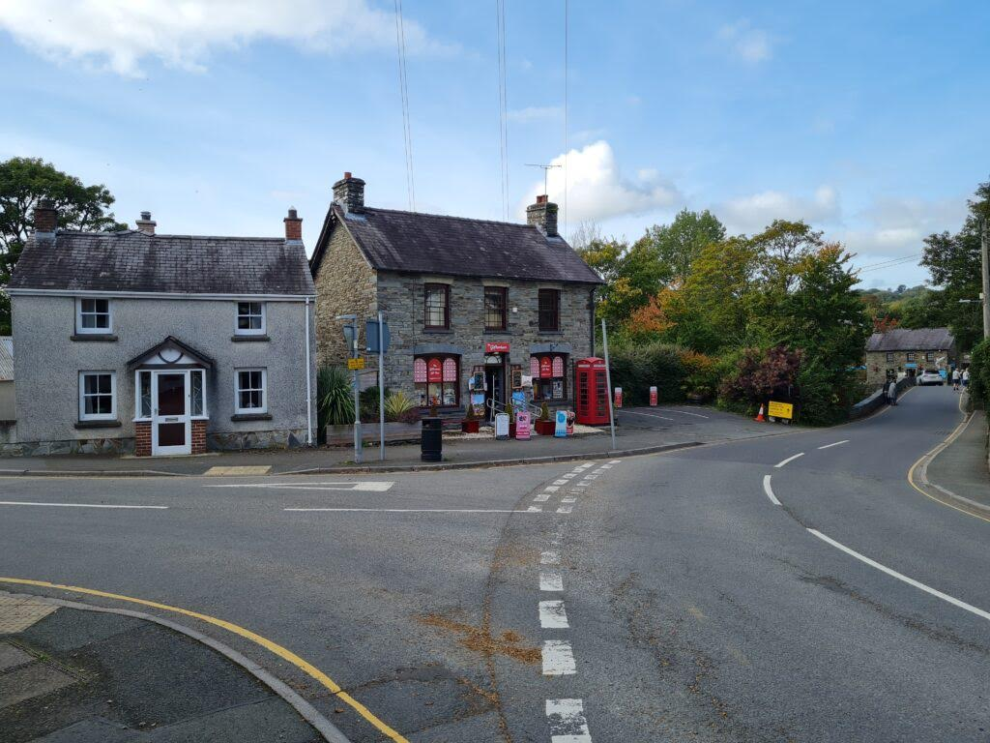ANY decision about whether Pembrokeshire County Council will adopt the Welsh Government’s controversial Tourist Tax is years away. Even then, the local authority could choose not to levy the charge on visitors to Pembrokeshire.
That’s according to Councillor Paul Miller, the Cabinet member responsible for tourism and a director of the Destination Management Organisation, Visit Pembrokeshire.
We approached Cllr Miller for comment after local MP Stephen Crabb raised the tax during questions in the House of Commons.
VISIT PEMBROKESHIRE CRITICISES TAX
Mr Crabb raised the topic the week after Preseli Pembrokeshire MS Paul Davies raised Pembrokeshire businesses’ concern about the tax’s potential impact on our County’s attractiveness as a tourist destination.
Mr Davies’s question got short shrift from Mark Drakeford. The First Minister dismissed businesses’ concerns and said they had to get used to the tax because it was coming and they’d have to get used to it.
During the Commons debate, Stephen Crabb said such a levy would be the “very last thing” businesses need.
The Preseli MP said “a great many “of the “new job opportunities and careers paths” created in Pembrokeshire are in the tourism and hospitality sector.
He added: “The very last thing that business people who are creating those growth opportunities need right now is a tourism tax of the kind being brought forward by the Welsh Labour Government in Cardiff that will hit these businesses with new burdens and raise the cost of going on holiday in Wales.”
The new “tourism tax” is being opposed by the Wales Tourism Alliance and Welsh Conservatives Senedd Members in Cardiff Bay.
Visit Pembrokeshire, the Destination Management Organisation based in Pembrokeshire, which comprises tourism members operating within Mr Crabb’s constituency, said it was “very disappointed” at the Welsh Government announcement.
“It’s disheartening to hear that the strong opposition from the trade across Wales has not been listened to,” said Emma Thornton, its Chief Executive, who spoke out in a BBC article earlier this year.
IT’S “IF” NOT “WHEN” FOR PEMBROKESHIRE
The Welsh Government has previously said that the levy would be for each Council to control, and they would choose whether or not to introduce the charge “according to the needs of their communities”.
Councils fear an element of compulsion from the Welsh Government to levy the tax whether their members or constituents want it or not.
They fear that Councils that resist imposing or levying the tax at a lower rate face penalties from the Welsh Government withholding other funding. Mr Drakeford’s words in last week’s First Minister’s Questions can only heighten Councils’ concerns about the Welsh Government’s intentions.
We asked Paul Miller to respond to the concerns conveyed to the House of Commons by Stephen Crabb.
His words imply the Council might use its discretion over the Tourism Tax.
Cllr Miller said: “I think there’s understandable nervousness among tourism business of the unknown, particularly about an unknown new tax burden.
“That’s understandable.”
Paul Miller continued: “It’s the job of government and the local authority to sketch out over the next few years if and how we intend to use the power to implement a new levy.
“Most importantly, we must share how we might intend to spend any new money raised.
“It will be several years before we can introduce the levy.
“I’ve always been clear that IF Pembrokeshire Council decides to introduce a tourism levy, we’ll be doing so to ensure the infrastructure in the County upon which tourism relies is as good as it needs to be and see the investment it needs to see.”
THE ARMS RACE
The Welsh Government appears to have failed to consider a possible outcome of leaving the tourism levy in Councils’ hands.
Suppose Pembrokeshire decides against imposing a levy, but Carmarthenshire and Ceredigion impose a £3 and £4 per night levy, respectively. In that case, renting a holiday property in Aberycych, for example, would be over £20 a week cheaper than in Cenarth or Llechryd, despite the properties being within spitting distance.
The tourist levy could lead to an “arms race” between Welsh local authorities as they balance the value of tourism to their economies against the cost of administering a new local tax and any adverse impact on tourism.
That cannot be what the Welsh Government intends, but that is a possible result of leaving it to local authorities to decide whether to impose the Tourism Tax and, if they do, at what rate. The only way around that is an element of direct or indirect compulsion about the levy’s imposition and telling Councils what they can or cannot do about the level of taxation.
If it does so, it adds fuel to the argument that the tax is less about improving local infrastructure for tourism and more about replacing Welsh Government support for Council spending.


















